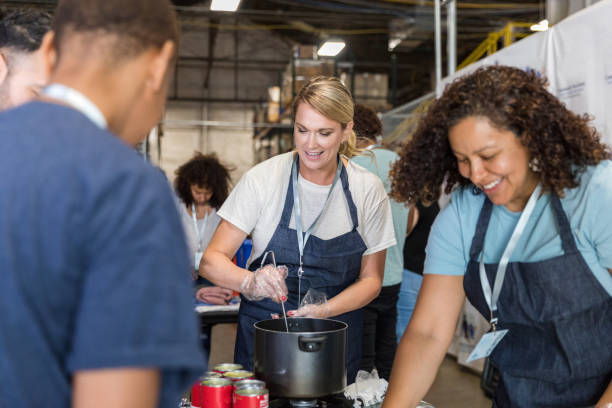The Power of Operations in Nonprofit Success
Volunteers of America has a long-standing and inspiring mission: to uplift vulnerable individuals and communities by providing vital services such as housing, healthcare, and support for those in crisis. With thousands of dedicated volunteers and staff working tirelessly, Volunteers of America touches countless lives every day. But like many nonprofits, they face the challenge of making every dollar and every hour count — ensuring that limited resources translate into maximum impact.
In today’s complex world, the success of organizations like Volunteers of America depends not only on passion and commitment but also on the efficiency and effectiveness of their operations. Behind the scenes, countless decisions are made daily: How to schedule volunteers to cover peak demand? How to manage donations and distribute them quickly to those in need? How to optimize transportation routes or prioritize fundraising efforts?
This is where operations research and industrial engineering come into play. These fields specialize in using data, mathematical modeling, and analytical methods to solve complex operational problems, turning resource constraints into opportunities. By applying these tools, nonprofits can improve processes, reduce waste, and ultimately serve more people — with the same or even fewer resources.
In this post, we’ll explore how operations research can empower Volunteers of America to amplify their impact, streamline their operations, and continue transforming lives with greater efficiency.
What is Operations Research and Why Does It Matter?
At its core, Operations Research (OR) is the science of making better decisions. It uses mathematical models, statistics, and algorithms to analyze complex systems and find the most efficient ways to allocate limited resources, schedule activities, or manage logistics. Think of it as a toolkit that helps organizations solve problems where there are many moving parts and multiple competing priorities.
OR has been successfully applied in a variety of industries. For example:
- Supply Chain Management: Retailers use OR to optimize inventory levels, ensuring products are available without overstocking.
- Healthcare: Hospitals apply OR to schedule surgeries, manage staff shifts, and improve patient flow.
- Disaster Response: Emergency teams use OR to plan evacuation routes and distribute relief supplies quickly and effectively.
So why does this matter to nonprofits like Volunteers of America? Because nonprofits often operate under tight budgets, with limited staff and volunteers, yet face growing demands. Operations Research can help them:
- Streamline volunteer scheduling to cover critical need without burnout.
- Optimize distribution of donations so that goods reach those who need them faster.
- Improve fundraising strategies to maximize returns on every campaign.
- Use data-driven insights to continuously improve programs and services.
In essence, operations research empowers nonprofits to do more good — by working smarter, not harder.
Common Challenges for Volunteers of America That Operations Research Can Solve
Sometimes the best way to understand the potential of operations research is through examples that show how similar challenges can be tackled effectively.
Example 1: Optimizing Volunteer Shifts to Boost Coverage and Reduce Burnout
Imagine a community center struggling with volunteer scheduling, where shifts are sometimes understaffed while others have too many volunteers. By applying an operations research approach to balance volunteer availability and program needs, it’s possible to increase coverage during busy times and reduce volunteer fatigue — leading to happier volunteers and better service.
Example 2: Streamlining Donation Sorting and Distribution
Consider the holiday season, when donations arrive in large volumes and sorting can become a bottleneck. Simulation modeling can help redesign sorting processes to minimize delays, so donations move more quickly from drop-off to distribution, helping families get support when they need it most.
Example 3: Efficient Routing for Food Delivery Programs
For programs delivering meals to home-bound clients, routing vehicles efficiently is a common challenge. Using operations research tools to optimize routes can reduce driving distance and costs, freeing up resources to serve additional neighborhoods.
Let’s Chat and See If We Can Help
Just like your volunteers lend a hand to make a difference, we’d love to offer our support as a resource to help you understand operations research — no pressure, no big commitment.
We’re happy to have a simple conversation to answer any questions you have about how this approach works and to see if there might be a small, manageable project that could help improve your operations.
Think of us as an extra set of hands, here to help you work smarter and make an even bigger impact. If you’re interested, just reach out and let’s start the conversation.
